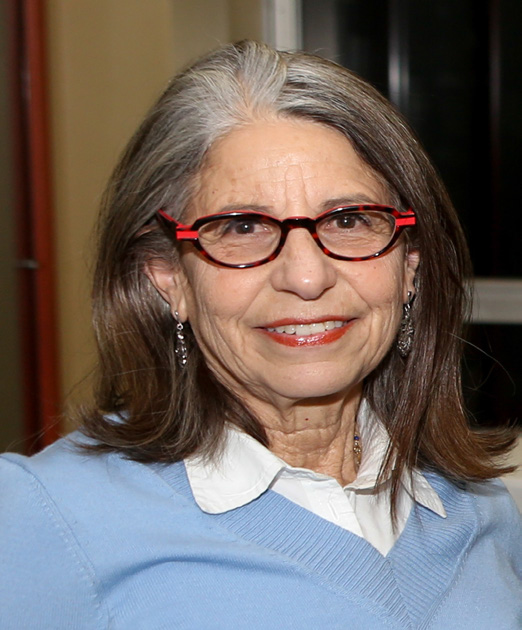Norma Joseph is a highly educated university professor, a CJN columnist and an outspoken advocate for Jewish women, yet she “did not have a clue” about how to be a caregiver to her husband, after he suffered a debilitating stroke.
“I felt chaos descend on me,” she said, admitting she was totally unprepared for the physical, emotional and financial toll of caring for him at home for seven years. The stress and exhaustion were overwhelming.
“I was a professional.… I thought I knew something. I knew nothing,” she said in a keynote address at the Cummings Centre’s daylong conference for caregivers on Oct. 3 in Montreal. “There was no guidebook or one number to call, no one place I could turn to.”
Joseph said that after her husband, Rabbi Howard Joseph, was discharged from the Jewish Rehabilitation Hospital in Laval, Que., she was left stranded. He was confined to a wheelchair and needed round-the-clock attention.
She continued working full time in Concordia University’s religions department. Rabbi Joseph is rabbi emeritus of the Spanish and Portuguese Synagogue, after serving as its senior rabbi from 1970 to 2009.
Joseph found navigating the public system bewildering and the limited home care she did secure was far from satisfactory, topping out at just 10 hours a week.
The workers that her local community service centre (CLSC) sent were “so incompetent” that she stopped using them.
Private care was financially ruinous. Only when the regulations changed and the government offered to pay for 20 hours a week and she got to hire the worker, did life get a little easier.
Joseph warned that everyone should prepare as much as possible for the eventuality of having to take care of a loved one, or of being the recipient of such care.
With medical advances, people are living longer, but the years of ill health can also be longer, she said.
While government-sponsored home care has improved somewhat in Quebec since her husband became ill, Joseph said the system still relies on family members and friends to bear the brunt of the responsibility.
At the time of her husband’s stroke, Joseph was already trying to be the long-distance caregiver to her ailing mother in Florida, feeling guilty she couldn’t do more for her. On top of that, Joseph’s two out-of-town daughters-in-law were then diagnosed with cancer.

The popular term “sandwich generation,” for people like her, is a misnomer, she feels, as there is nothing neatly packaged about being torn between the needs of, in her case, three generations of family members.
Joseph also scoffs at the common advice to “take care of yourself.”
“What does that mean? That you are going to come over and take care of Howard, while I take a massage?” she asked. Some friends were great, she said, but others “disappeared.”
Her husband had taken care of her throughout their marriage. But when he fell ill, she had to learn very quickly about managing money and legal affairs, such as obtaining power of attorney and updating a will.
She urged everyone to immediately inform their adult children where their assets are and to ensure the children are given authority over said assets, if they become incapacitated.
She experienced the darker side of people: the “shnorrers” of all kinds who showed up at the door looking for money (the rabbi had been very charitable).
“I thought that once my husband was ill, they would stop, but they didn’t. They cheated us out of money; they came in the house and made him sign my chequebook. They tried to steal thousands of dollars from our account,” she told a stunned audience.
Today, Rabbi Joseph is a resident of the Jewish Eldercare Centre (JEC), but his wife said that her role as a caregiver continues. The JEC is a “wonderful place,” she said, but she thinks that if she was not around, he would not be looked after as well.
The government is never going to provide everything. We have to decide what we will agitate for and what to do for ourselves.
– Norma Joseph
What she has concluded is that the health-care system is a “crap shoot.”
Some integrated health and social services centres (CSSS) social workers were marvellously helpful, and government aid was often generous, helping to pay for adjustments to their home and buy an adaptive van she could drive him in.
Joseph also has high praise for Montreal’s 911 emergency service, which she was forced to call on numerous occasions. Their workers were unfailingly kind and encouraged her not to hesitate to call, even if it was not urgent.
Joseph is advocating for greater recognition of the value of non-professional caregivers, who are saving the government a lot of money.
“The health-care system would crash without us,” she said. “One study shows that a quarter of Quebecers aged 15 and over care for a loved one in some capacity.… Yet the government takes us for granted.”
Caregivers, however, can’t leave it up to government to develop a co-ordinated plan to better serve them. “We have to take charge,” she said. “The government is never going to provide everything. We have to decide what we will agitate for and what to do for ourselves. If we don’t do it, nobody else will.”








